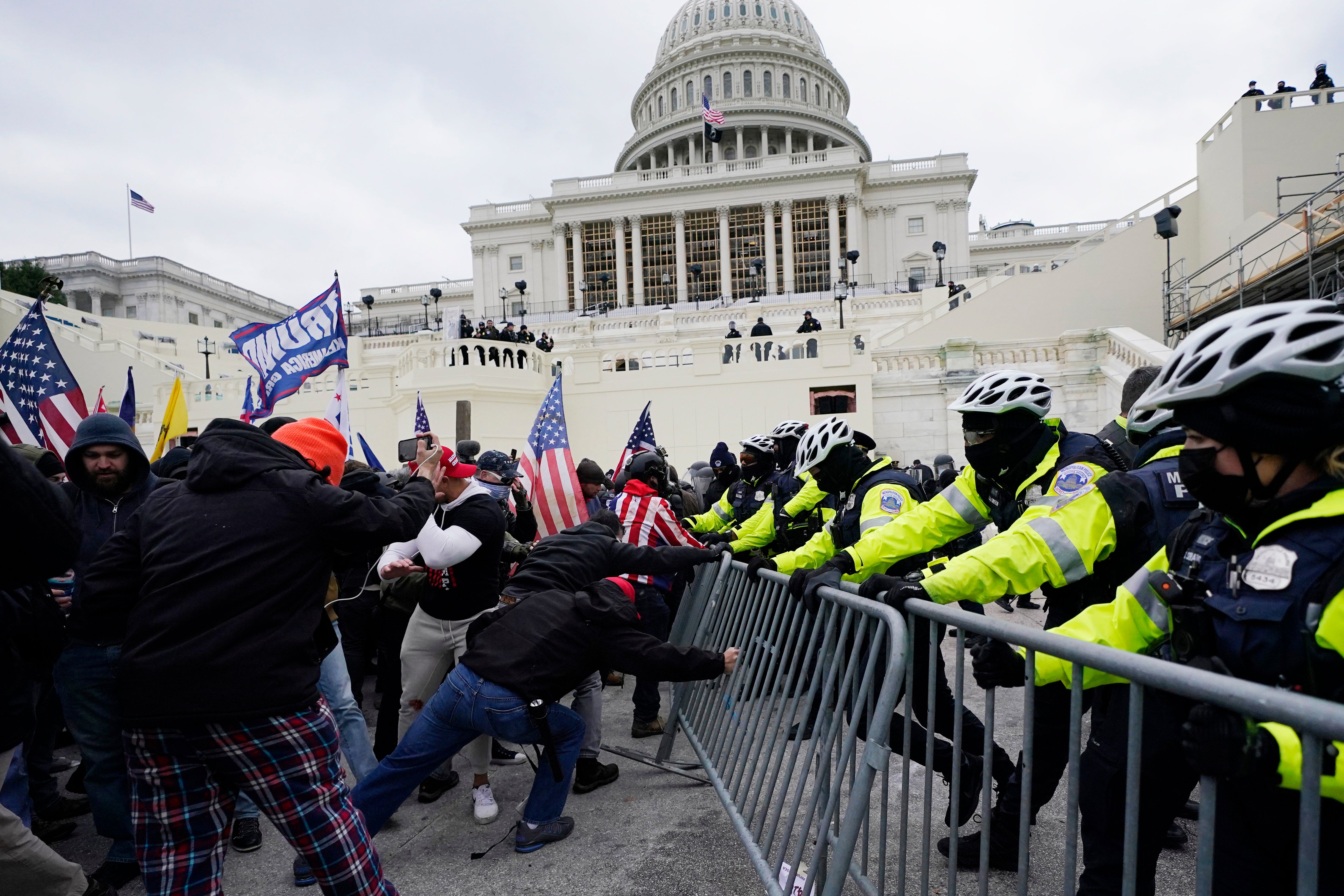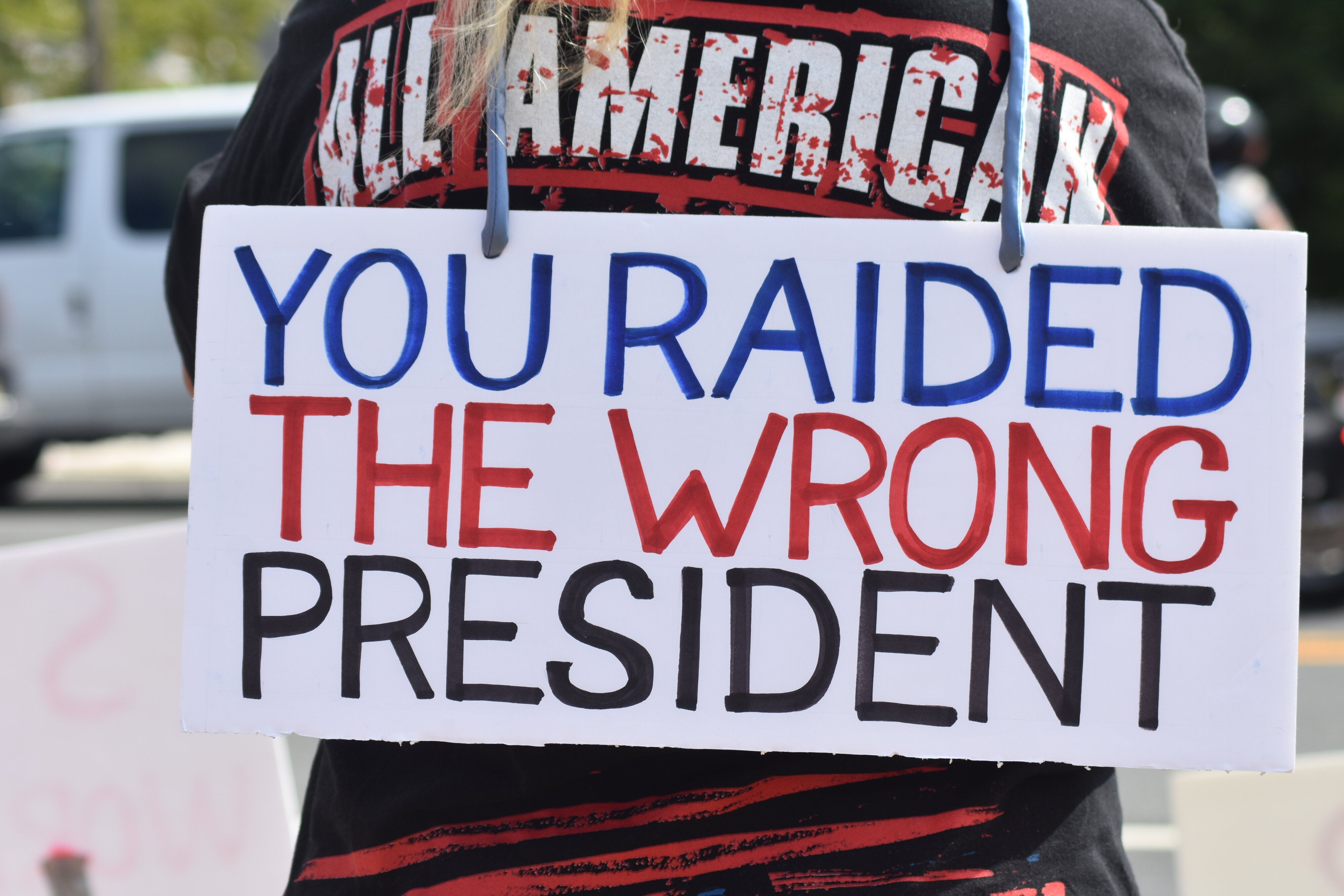
Bandy Lee grew up in an immigrant Bronx family of doctors and scientists. Politics never particularly interested her personally or professionally as she pursued a successful career in psychiatry.
Until she became so concerned by Donald Trump’s behaviour and rhetoric. She could only call it one thing: Dangerous. Very much so.
In 2017, she put together a conference and consulted other medical professionals, then published a book containing 27 essays from psychologists and psychiatrists calling Trump a “clear and present danger.” The book outlined all of the ways a Trump presidency could threaten the country, with writers touching upon his perceived sociopathy, narcissism, paranoid delusions, impulse control problems, antsocial personality disorder and a range of other concerning traits.
“Donald Trump’s speech and behaviour show that he has severe sociopathic traits,” wrote Dr Lance Dodes in The Dangerous Case of Donald Trump, adding: “The need to be seen as superior, when coupled with lack of empathy or remore for harming other people, are in fact the signature characteristics of tyrants, who seek the control and destruction of all who oppose them, as well as loyalty to themselves instead of the country they lead.”
Almost all of their predictions about Trump’s behaviour and more widespread discord came true, but Dr Lee’s book came under fire from MAGA supporters, conservatives and even the American Psychiatric Association, which complained the doctors should not be diagnosing public figures, especially those not under their care, because such behaviour was contrary to a guideline known as the Goldwater rule.
Dr Lee and her writers argued that they had a greater duty to warn society of danger.
It’s hard for anyone to argue, at this point, that the book wasn’t highly prescient. And now, Dr Lee says, she’s even more scared.

“My biggest fear is that we will get further into pathology as a society, because once ... we spiral into that level of the drive to destroy ourselves, it will become much stronger,” she tells The Independent. “In a state of health, we are driven ... to affirm life and wellbeing. In a pathological state, we are driven to destroy, bring about death.”
She’s worried that, if “Trumpism is not contained, it has already spread at a national level beyond what can easily be contained. If it continues, then we will most likely head toward our demise.”
It’s incredibly frustrating for Dr Lee and her colleagues, she says, because they warned about exactly all of this. They wrote extensively about his unfitness and potential for fomenting mayhem, only to later witness Americans storming the Capitol, a country that has descended into riots and inarguably become even more divided.
They saw this coming and no one listened. And speaking publicly about her fears has hurt her career: Dr Lee attracted the ire of the APA, which reaffirmed its commitment to the Goldwater rule the same year her book was published.
The association named the ethics principle in reference to an “incident that took place during the 1964 presidential election.”
“During that election, Fact magazine published a survey in which it queried some 12,356 psychiatrists on whether candidate Sen. Barry Goldwater, the GOP nominee, was psychologically fit to be president,” the association notes in a 2017 press release. “A total of 2,417 of those queried responded, with 1,189 saying that Goldwater was unfit to assume the presidency. Goldwater would later sue the magazine, which was found liable for damages.”
APA President Dr Maria A. Oquendo, when re-affirming the association’s commitement to the principle in that same release, said: “It was unethical and irresponsible back in 1964 to offer professional opinions on people who were not properly evaluated and it is unethical and irresponsible today.”
Dr Lee was let go from a position at Yale University and filed a lawsuit against the institution last year, claiming the loss of her contract stemmed from tweets she made about Trump and Alan Dershowitz in 2020.
Earlier this month, US District Judge Sarah Merriam threw out the case, stating in her ruling that Dr Lee’s “vague assertion that some unspecified provision in the Faculty Handbook creates a right to ‘academic freedom’ is plainly insufficient to show that [the] defendant undertook a contractual commitment to guarantee plaintiff continued reappointment.”
A university spokeswoman told the Yale Daily News in a statement that the school “does not consider the political opinions of faculty members when making appointment decisions.”
“Yale is gratified that the United States District Court for the District of Connecticut has agreed with Yale that Dr. Lee’s lawsuit had no legal basis,” wrote Yale University spokesperson Karen Peart in an email.
Dr Lee has said she will appeal and will not stop speaking out. She told The Independent that “there was clear medical consensus“ regarding Trump — that she was far from the lone psychiatric professional unsettled by the 45th president.
“Nobody disagreed that he was dangerous, and very dangerous,” she says. “And being dangerous is, by definition, unfit to be president and probably many other things. We eventually did do a fitness evaluation, and found that he was unfit for just about any job because he could not meet the most basic criteria for fitness for making decisions.
“That was based on the Mueller report. So close coworkers and associates giving reports about his his behavior on the job under sworn testimony, I mean, that’s ... better than what we normally have for fitness evaluations. It was a very, very rigorous fitness evaluation, and he could not meet the most basic criteria that is just basic for any job.”
Trump himself never stopped giving the doctors plenty of information for a diagnosis.

“I mean, there was such a wealth of information available going back decades, and he was letting known his unfiltered stream of consciousness thoughts constantly, on an hourly basis, every single day. We never get that kind of information from a patient. It was easier to diagnose him than a patient,” Dr Lee tells The Independent.
Dr Lee, in her 25-year-long psychiatry career, has worked with prisoners, gang leaders, mafia bosses — arguably the most dangerous types of personality types with a frightening capacity for manipulation, violence and, most importantly, getting others to follow suit.
“The first alarm came, because this was the kind of person I would see ... in maximum security prisons, where I usually work,” she said. “And he was running for the US presidency! So that was very alarming to me. That’s when I was almost on the edge of my chair, the entire campaign ... and then the election and into inauguration. That’s why I bolted into action.”
She says: “He is more more serious an instigator and shaper of the culture – not because he is clever, because definitely not. Because of the severity of his pathology and the influence and the position we had placed him in.”
That’s why she’s not surprised at how the Trump presidency transpired; she’s shocked that people in society who saw what was happening did nothing to stop it.
“The phenomenon is exactly as I thought would happen ... not even big divergence from what I predicted and feared,” she says. “What was unexpected and surprising was that there would not be intervention, proper invervention to so common a phenomenon would happen.

“I’ve worked in public and private sector settings, state hospitals and prisons, where you see what happens when there’s no treatment. People go on for a long time with illness and impairments, and you see how devastating it can get.
“But that was not what I expected at a national level; I thought that we would have intervention from the healthier segments of society. But because the nation was so unfamiliar with this phenomenon, I mean, unless you’re a mental health professional who’s worked with severely, seriously ill individuals, day in and day out, you can really, really cannot imagine.
She takes great pains to distinguish between mental illness and mental unfitness, which are two very different things. In The Dangerous Case of Donald Trump, it’s pointed out that many medical professionals believe around half of US presidents could have suffered from some type of mental illness.
That would not necessarily make them unfit. Trump is a different kettle of fish, they say.
“The two are not the same,” Dr Lee says. “Regardless of what popular conception is about mental illness, mental illness ... doesn’t mean you are incompetent, or unfit. In fact, you could be very competent and even more competent in the areas that are not affected.”
However, Dr Lee argues that Trump’s mental state disconnects him from reality and poses a danger to basically, well, everyone.
“It’s kind of like asking, does Donald Trump really believe in his lies? That’s, that’s the wrong question.” she says. “His mind does not work that way. In his mind, reality is irrelevant. So whether he believes something or not, that is predicated on believing that there is a reality to believe it.”

She feels the only way to stop Trump and the increasing polarization and violence would be to, in her words, “indict him, isolate him. Placing him in custody will do that: sever his access to the public.”
“We have to intervene at some point, and the sooner we intervene, the lesser the dangers will be, as perilous as it seems now to intervene. And when we do, we will see violence. But it’s going to be a lot less violent than intervening later,” she says.
Everything to date, she says – even before his political candidacy – points to the fact that Trump has no intention of moving to the sidelines.
“What I remembered was from the 80s – because I grew up in New York – what I remembered of him, I found it rather curious that he was no longer in real estate, just selling his name ... I’ll just put it simply: Somebody who has to have his name upfront and so many places, and not by his own accomplishments, but by selling his name, that’s a level of personality pathology that exceeds the range of normal.”
She adds: “It’s not just that but many, many other aspects of him in conjunction with that, make it apparent that he has a personality pathology.”
And that pathology has spread nationwide, which also doesn’t entirely surprise her, given experience of gang leaders and others with Trump’s dangerous personality traits.
“That’s what pathology does and how it works,” she tells The Independent. “It hijacks the faculties of the mind, that’s how you become incapacitated; the symptoms are severe.”
She says: “We’ve allowed him to set the narrative and shift what is normal, rather than intervene early and severely in ways that are commensurate with the severity of the problem.
“That is what did not happen, and that is the detriment of not having experts speak. Because, I mean, we have expertise for a reason to meet the need to meet the phenomenon of mental impairment and psychological dangerousness. And we have a duty everywhere else to warn if the public is in danger.”
This article was originally published on 7 September







